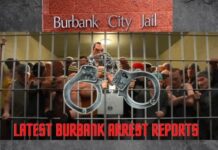myBurbank recommends a ‘YES’ vote for the City of Burbank’s Propositions P and the Burbank Unified School District’s Measure QS.Please take the time to read both of our Proposition fact pieces written by Greg Simay.
Here is our reasoning for supporting both:
MEASURE QS
We recommend a “YES” on Measure QS.
We thought a long time about this one.
The parcel tax will hit hardest large enterprises; many of them have been the strongest donors and supporters of Burbank schools. For every 100,000 square feet of taxable real estate they own, they could be paying $10,000 a year more each year. There will likely be some senior citizen apartment dwellers who could see a $10+ per month increase in their rents, if their landlords decide to pass along the costs of the parcel tax to renters.
And a lot of people in-between are hurting financially, even in an employment powerhouse like Burbank.
But we’re asking you to vote yes anyway. The Burbank Unified School District is in a pickle not of their making. Since 2014, Sacramento has, without so much as a by-your-leave, been making local school districts pay more for teacher retirements so that it can pay less. By 2020, our District will be paying $13 million more per year in pension payments compared to 2014.
If any state government deserves a pitchfork-and-torchlight parade, it’s Sacramento. But don’t expect reform anytime soon.
Meanwhile, the schools face a $2.5 million deficit beginning in 2019 even if teachers receive no salary increase and even if no new education initiatives are launched. Existing programs, including college and career courses, elementary school music programs and some physical education instruction, will be facing the ax.
The District has eliminated some top administrative positions, and the City of Burbank continues to pay for crossing guards and school resource officers, as well as helping out the District in other ways. But at the end of the day, wages and salaries account for 88% of the District’s budget. Making substantial cuts would immediately translate into larger classrooms and fewer programs.
We wished that the District had been beating the drums sooner about what Sacramento has done and will be doing through 2020. Going forward, whether Measure QS passes or not, the District must do a better job of alerting the public to any funding challenges that lie ahead.
If Measure QS passes, the District must pledge to go the extra mile in being accountable and making sure that we know that the Measure QS funds are really, truly making a difference in students’ lives. To use an movie industry term, they need to show us that the “money made it to the screen.”
It’s been said that our children will not have it as good as we will. And that may well be true if they don’t bring high skills to the marketplace, and especially true if they are saddled with college debt in the bargain. But what if quality public schools could aim students in the right direction, being a strong candidate for an apprentice program for a high-demand trade or craft? Or shaving a year or so off college? And not having to accomplish this by resorting to a private school?
Parents and relatives of Burbank students: we think you already know that Burbank schools are those quality schools. That’s why so many of you paid a premium to buy homes here (and ok, maybe for a shorter commute as well.)
And that’s why we’re coming down on the side of voting “YES” for Measure QS.
MEASURE P
We recommend that you vote “yes” on Measure P.
The City is squarely facing its General Fund capital funding and operating budget shortfalls. A lot of its capital funding dried up when the State curtailed redevelopment in 2012. Burbank’s redevelopment efforts had been very successful and as a consequence, had been able to support quite a few capital improvement projects that would otherwise have fallen to the General Fund.
The operating shortfall had been a self-inflicted wound; in prior decades, the City (along with most other California cities) took “pension holidays” rather than build a rainy day fund for tougher times, which came with a vengeance in 2008. But during those times, the City did create a legacy of signature facilities, including upgraded fire stations and a signature Buena Vista Library 2.0.
The City has not waited until now to address the pension elephant. It got its proprietary funds healthy enough to address their portions of the retirement burden, while still keeping rates and fees competitive. For all new hires, including those in the General Fund, pension programs are significantly less generous than before, and the new hires are paying a higher percentage of the cost—50%. A chunk of cashed-out redevelopment money was used to reduce future pension liability by $750,000 per year.
Over the last several years, the City has cut General Fund staffing by about 5%, not counting the further savings generated by the temporary hiring and salary freeze. As a result, emergency funds are fully stocked, and by the end of this fiscal year, the City will have generated over $14 million spendable surpluses. More recently, the City is making progress in generating $9.0 million in savings per year, including having all employees—not just new hires—contributing to their retirements at the 50% level.
All of these efforts do not eliminate a need for the extra sales tax of ¾ penny per dollar. Without it, there would have to be cuts in City services and capital improvements deferred.
But, the City has shrunk the elephant to the point that this tax would not only eliminate the operating shortfall, but could also inject over $10 million in annual capital funding. And because of the spendable surplus, the City Council has the flexibility to decide how much to further accelerate the pension liability payments so as to reduce future payments. In any case, the capital monies spent, by policy, would be in addition to a baseline funding level. No shell games here.
And as taxes go, the sales tax is less onerous than most, and one-third will come from non-residents spending money here. There will be watchdog committees in place as well, beyond the ongoing scrutiny from various Council watchers.
In other words, the City is firmly under adult supervision, to the envy of many of our neighbors.
There’s also the consideration that if we don’t raise the sales tax rate by ¾% to the maximum allowed rate of 10 ¼%, some other County or regional agency will. At best, only a portion of the money wiould return to Burbank with—how to put this politely—distant accountability. And hard-to-see results. Even with a magnifying glass.
We’d rather the money stay in Burbank under the control of local officials that are accessible and accountable, rather than distant and unknown.
Vote “yes” on Measure P.




















